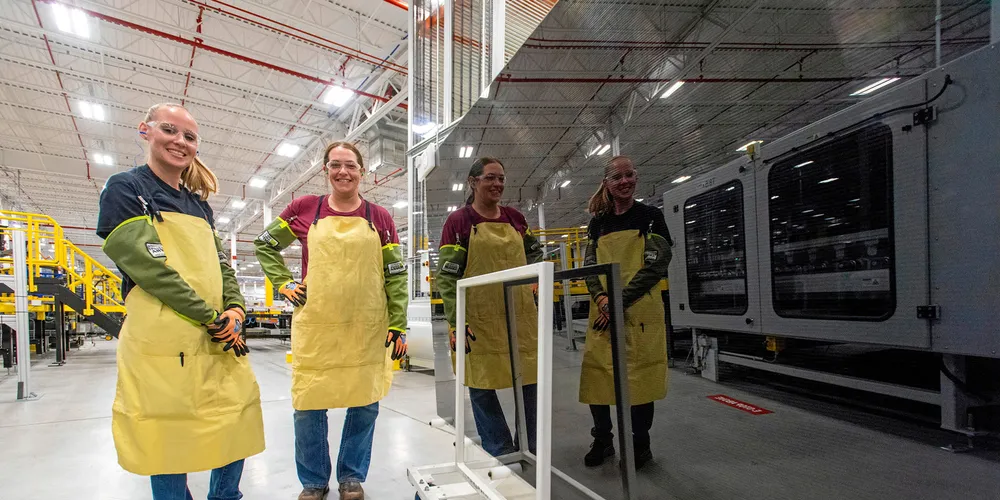US Q2 solar panel imports surge as Biden tariff evasion ruling looms for Chinese suppliers
Administration initially found that some Chinese firms were evading tariffs by routing through Southeast Asia, the main US supply source for imports.

American solar panel imports in April through June surged 90.5% from a year ago, as the industry here awaits the US Department of Commerce’s final decision this month on whether Chinese manufacturers tried to evade tariffs by shipping modules through Southeast Asian countries.
As measured by 20-foot equivalent unit (TEU) shipping containers carrying modules, Vietnam supplied 31.2% of imports followed by Thailand (22.5%), Cambodia (13.7%), and Malaysia (12.9%), according to according to a new analysis from S&P Global Market Intelligence.
Their combined 86.5% was above the normal 80% share of total US imports. India was the fifth-ranked origin with 6.2%.
The second quarter was a record for any three-month period and marked the fourth consecutive quarter of rising imports after President Joe Biden in June 2022 waived tariffs for two years on crystalline-silicon PV cells and panels from Southeast Asia, which has allowed some of those Chinese-branded products to enter the US in violation of its trade rules.
He made the controversial move under pressure from clean energy groups and solar product importers, installation firms, and project developers.
Biden said it was necessary to ensure near-term US supply and give domestic suppliers time to expand capacity to help meet an expected surge in demand after 2024. The US industry is heavily dependent on imported solar materials, components, and panels.
Critics accused Biden of undercutting his administration’s own investigation before DoC could issue its final report and forcing US manufacturers to unfairly compete against Chinese suppliers receiving a raft of state subsidies.
Last December, DoC initially found that four of eight leading Chinese solar suppliers tried to sidestep US tariffs – BYD Cambodia, Canadian Solar and Trina solar in Thailand, and Vina Vietnam. Another 22 companies are under investigation.
Four other firms under investigation were found in compliance. They are Boviet Solar in Vietnam, New East Solar Cambodia, and the Malaysian operations of Hanwha Q CELLS and Jinko Solar.
If DoC finds Chinese-affiliated companies in violation of US trade rules, they could be subject to both retroactive duties and/or new ones between 50% and 254%. Biden said he will not extend his moratorium after it expires 6 June 2024.
Still, he will feel intense pressure from solar developers and installers to do so, along with the industry’s allies in Congress in the run-up to 2024 national elections. He is running for a second, four-year term.
In the year since Biden signed the Inflation Reduction Act, the landmark federal climate law, the private sector has committed to invest nearly $20bn in new US solar factories across the supply chain, Solar Energy Industries Association (SEIA), a national trade group based in Washington, DC, said Monday.
Most of that potential investment would come from foreign companies who are flocking to the US to take advantage of the law’s unprecedented level of federal subsidies.
Manufacturers of panels and other clean energy products such as electric vehicle batteries could pocket billions of dollars in tax credits over the next decade, according to private estimates.
Last week, First Solar, the largest US player which could receive as much as $710m in subsidies this year alone, announced it would invest up to $1.1bn in a new manufacturing facility - its fifth here - in Louisiana.
S&P expects that US panel production capacity could reach 25.7GW by the end of 2023, nearly double 14.4GW at the end of last year.
(Copyright)